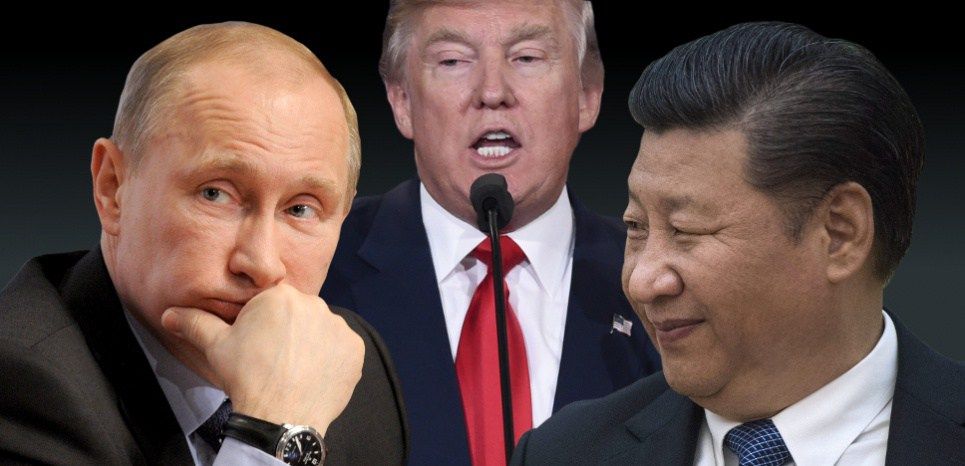By Robert Reich
Trump, Putin, Xi – these men aren’t stupid. But they have no way of eliciting, recognizing, or assessing useful criticism
It appears that Vladimir Putin’s aides have misinformed him about the war, fearful of his reaction.
On Wednesday, American officials revealed that, according to American intelligence, Putin’s strict isolation during the pandemic and willingness to publicly castigate advisers have contributed to him getting incomplete or overly optimistic reports about the progress of Russian forces.
“We believe he’s being misinformed by his advisers about how badly the Russian military is performing and how the Russian economy is being crippled by sanctions,” Kate Bedingfield, the White House communications director, told reporters. “Because … the senior advisers are too afraid to tell him the truth.”
As a result, the attack has been a catastrophe for Putin. He badly overestimated the Russian military and underestimated Ukraine’s capacity to resist.
Instead of weakening Nato, his attack has strengthened it. And now that the world’s democracies have cut off Russia’s access to the world banking system, Russia’s economy is in freefall.
Dictators like Putin are particularly vulnerable to inaccurate feedback. Instead of independent truth-tellers, they are often surrounded by truth-deniers.
Rather than experts and investigative journalists, their world is filled with pseudo-scientists and propaganda. In place of a free press, they have agitprop and disinformation.
The higher you rise in any hierarchy, the harder it is to get accurate feedback about your decisions because people are afraid to tell you the truth.
I’ve worked with several presidents. All have made big blunders. I’ve also known and written about CEOs of big corporations who have made terrible mistakes. In every case, they had flawed systems for getting useful, accurate and reliable feedback.
Donald Trump (whom I didn’t work with, but whose every move I watched) made among the dumbest decisions of any American president in history. Some might say this was inevitable; it was built into Trump’s character. But his key character flaw was his unwillingness to hear anything negative.
Trump surrounded himself with toadies and sycophants who didn’t dare tell him the truth. He demanded that everyone around him confirm his preferred self-image of invincibility. His White House was filled with fawning lackeys (he fired anyone who didn’t grovel). He refused to hear bad news. He rejected the validity of negative media coverage.
Trump could have accomplished any number of goals far more easily had he not kept digging himself into ever-deeper holes. He was his own worst enemy.
Or look at China’s Xi Jinping. Why would he decide to enter into a “no limits” partnership with Moscow on the eve of Putin’s disastrous military campaign? Talk about blunders.
Xi’s alliance with Russia has undermined China’s reputation and aggravated concerns among its neighbors about China’s global ambitions. It has already prompted Taiwan to strengthen its defenses and pushed other regional powers such as Australia and Japan to declare their own interests in Taiwan’s security.Advertisement
Trump, Putin, Xi – these men aren’t stupid. What’s stupid is their systems for making decisions.
They don’t include naysayers. They have no way of eliciting, recognizing or assessing useful criticism. All are trapped in halls of mirrors that reflect back at them what they want to see and hear.
The inverse relation between how high people rise in a hierarchy and the accuracy of the feedback they receive can be overcome if a leader aggressively seeks out dissenting views.
But it’s almost impossible to find dissenting views in a totalitarian system where dissent is often punished. One of the great virtues of a democracy is its multiple feedback loops – its many channels for expressing alternative viewpoints and voicing uncomfortable truths
After all, American democracy stopped Trump from doing even more damage than he did.
Yet when people like Trump, Putin, and Xi make terrible decisions, the world suffers. The world could even be annihilated.
Robert Reich, a former US secretary of labor, is professor of public policy at the University of California at Berkeley and the author of Saving Capitalism: For the Many, Not the Few and The Common Good. His new book, The System: Who Rigged It, How We Fix It, is out now. He is a Guardian US columnist. His newsletter is at robertreich.substack.com
The Guardian


Leave a Reply
You must be logged in to post a comment.